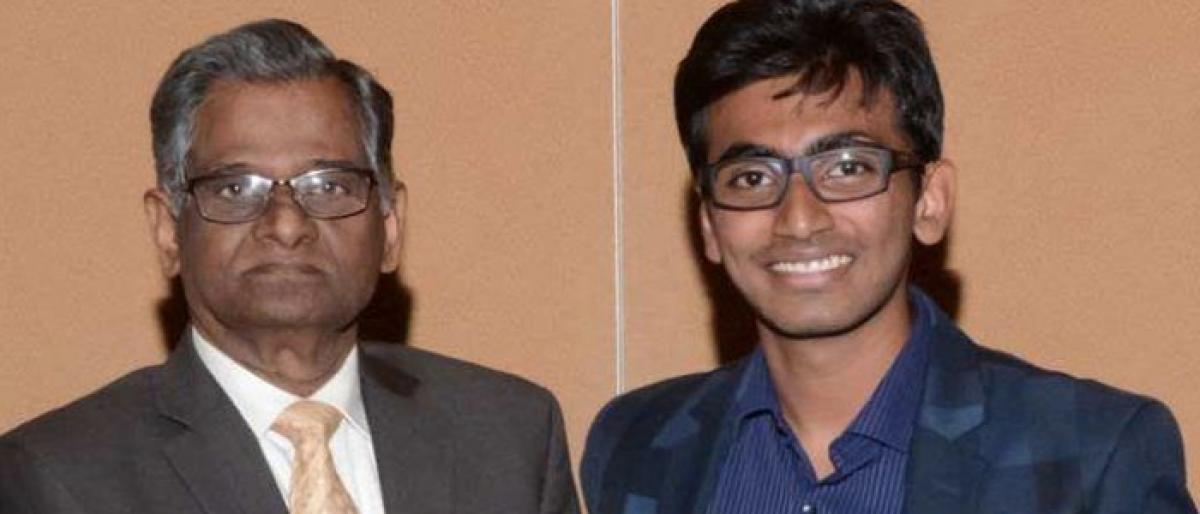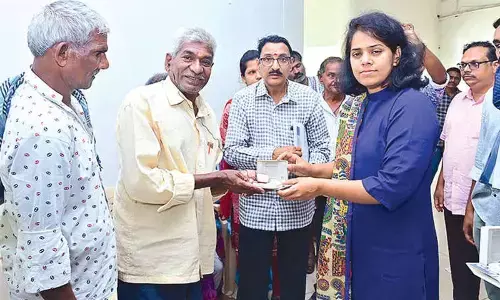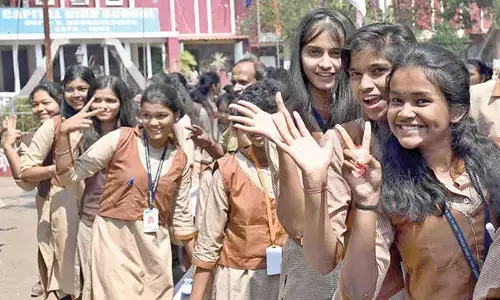Telugu student creates pace-detecting algorithm

An Indian student in the US has created a space detecting algorithm that can help tackle the problem of finding a parking spot by using big data analytics and save a persons time and money Sai Nikhil Reddy Mettupally, who is studying at the University of Alabama in Huntsville UAH, has also won second prize at the 2018 Science and Technology Open House competition for his creation
Houston : An Indian student in the US has created a space-detecting algorithm that can help tackle the problem of finding a parking spot by using big data analytics and save a person's time and money. Sai Nikhil Reddy Mettupally, who is studying at the University of Alabama in Huntsville (UAH), has also won second prize at the 2018 Science and Technology Open House competition for his creation.
According to a university press release, Sai's creation relies on big data analytics and deep-learning techniques to lead drivers directly to an empty parking spot. Big data analytics is a complex process of examining large and varied data sets to uncover information including hidden patterns, unknown correlations, market trends and customer preferences.
Sai conceived the idea shortly after the university transitioned to zone parking last fall. "The data show that, on a typical day, there is a high chance that students or faculty members will have difficulty getting a parking spot between 11 am and 1 pm, leading to the wastage of time and fuel, and adding to the pollution" He says.
"Hence, finding a parking spot as soon as a person enters the parking lot is essential." What he needed was to find a way to identify empty spaces and then direct the driver to the location. But unlike other parking apps in the market, he wanted to develop one that didn't rely on the purchase, installation, and maintenance of expensive in-ground sensors.
To help put his plan in action, Sai turned to Vineetha Menon, an Assistant Professor of Computer Science.
As the director of UAH's Big Data Analytics Lab, Menon also had access to the high-performance computing power that Sai needed to create and train his machine-learning model, which relies on a robust parking-lot data set provided by the Federal University of Parana in Brazil.
"The goal of the Big Data Analytics Lab is to establish Big Data Analytics and Data Science as mainstream research areas of the university, so it can accommodate the high computational and memory demands of Big Data generation and processing," Menon says.
Sai, who graduated in electronics and communications engineering from the Birla Institute of Technology and Science in Pilani, hopes to develop a parking-support mobile app—dubbed InstaPark—that can display the real-time grid layout of empty and occupied parking spots using the phone's GPS.
- Seema Hakhu Kachru








